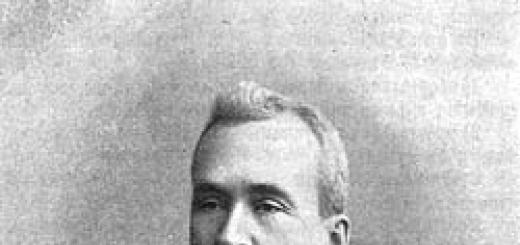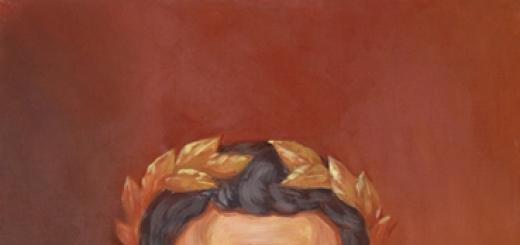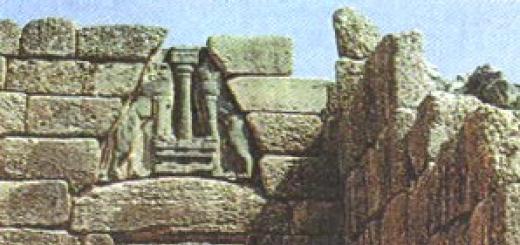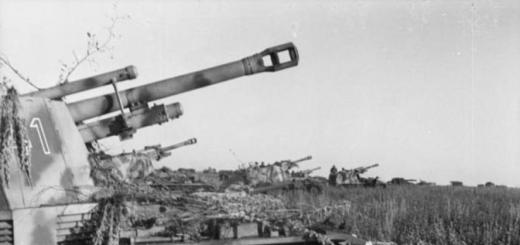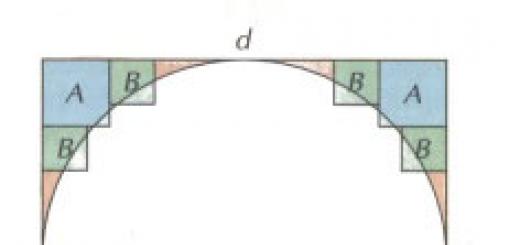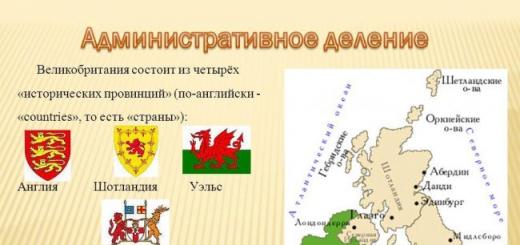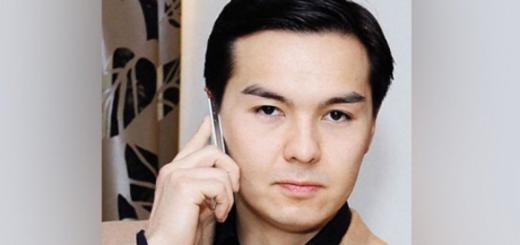Eighth-grader Zina came to the village from Leningrad for the holidays to visit her grandmother. There the war found her. Zina and other schoolchildren worked underground. They walked around the village, seemingly taking a walk, and obtained the most necessary information. Thanks to them, they managed to neutralize a large number of enemies. Then Zina became a scout. For a long time the Germans could not figure out the reason for their failures. A provocateur, a former school student, helped. He betrayed Zina and the other guys.
Returning from a mission, Zina was ambushed. A thin girl with two pigtails was arrested. When she was tortured, she was silent. Having failed to obtain any information from her, the girl was handed over to the boss.
The boss used a different tactic: he did not beat Zina, but spoke very kindly. His goal was to obtain information about underground partisans. He offered her chocolates and white bread, but the girl remained stubbornly silent. This torture with food lasted several days, but did not bring the desired results. Then he said that he would send her to her parents in Leningrad. At the mention of dad and mom, Zina’s heart sank painfully. She knew that her beloved city was under siege. And besides her parents, there was also a little sister left there.
Meanwhile, the boss pulled out a pistol and twirled it in front of the girl’s nose. He said that there was a small bullet in the gun that would put an end to the girl’s life. A car honked outside the window, the boss turned away. This was enough for Zina to take the gun. She shot point-blank, and also confidently killed another German who ran in at the noise.
The girl jumped out the window and ran, shooting back. The clip has run out of cartridges. A brave schoolgirl with two pigtails was shot without learning any information about the partisans.
The feat of Zina Portnova speaks of great love for the Motherland and teaches courage and the desire to ensure that there will never be war again!
- Rafael Santi - message report
The great artist Raphael Santi was born in 1483 in the small settlement of Urbino, located in eastern Italy. The future painter's family was not poor, since Raphael's father worked as an artist at the Duke's palace
- Profession electrician - report message
The specialty of an electrician arose at the end of the nineteenth century, at that time the use of electricity and power stations appeared. And to control power plants
Zina Portnova was born on February 20, 1926 in the city of Leningrad into a working-class family. Belarusian by nationality. Graduated from 7th grade.
At the beginning of June 1941, she came for school holidays to the village of Zui, near the Obol station, Shumilinsky district, Vitebsk region. After the Nazi invasion of the USSR, Zina Portnova found herself in occupied territory. Since 1942, he was a member of the Obol underground organization “Young Avengers,” whose leader was the future Hero of the Soviet Union E. S. Zenkova. In the underground she was accepted into the Komsomol. She participated in distributing leaflets among the population and sabotage against the invaders. While working in the canteen of a retraining course for German officers, at the direction of the underground, she poisoned the food (more than a hundred officers died). During the proceedings, wanting to prove to the Germans that she was not involved, she tried the poisoned soup. Miraculously, she survived.
Since August 1943, a scout in the partisan detachment named after K.E. Voroshilov. In December 1943, returning from a mission to find out the reasons for the failure of the Young Avengers organization, she was captured in the village of Mostishche and identified by a certain Anna Khrapovitskaya. During one of the interrogations at the Gestapo in the village of Goryany (now Polotsk district, Vitebsk region of Belarus), she grabbed the investigator’s pistol from the table, shot him and two other Nazis, tried to escape, and was captured.  The Germans brutally tortured the girl for more than a month; they wanted her to betray her comrades. But, having taken an oath of allegiance to the Motherland, Zina kept it. She was subjected to terrible torture and torment.
The Germans brutally tortured the girl for more than a month; they wanted her to betray her comrades. But, having taken an oath of allegiance to the Motherland, Zina kept it. She was subjected to terrible torture and torment.
On the morning of January 10, 1944, a gray-haired and blind girl was taken out to be executed. She was shot in the prison of the city of Polotsk (according to another version, in the village of Goryany).
In memory of Zina’s feat, memorials have been erected in Russian cities, because her feat will live forever.
 Zina Portnova. Dedication
Zina Portnova. Dedication
I want to talk about a hero
What during that evil war
I didn’t solve problems at school,
And the countries defended their rear.
She was only sixteen
And I had to grow up in battle.
Fate ordered her to fight,
Defending your homeland.
Even though I was still just a girl,
I didn’t want to wait on the sidelines.
It rang in my soul:
“There is only one way out - to fight!”
Every day is a risk and courage,
After all, she wormed her way into the enemy’s camp.
Not a step from the intended goal,
Her proud name is partisan.
How terrible this must be,
When you are young and pure in your thoughts,
Go into battle, understanding perfectly:
“A terrible fascist is opposite you”
And when she was finally captured,
The adversary began to torture her.
And then the partisan was killed...
The decision was made: shoot!
And I want to repeat it again,
You lined up with the war heroes,
With gratitude, Zina Portnova,
We remember that your feat is holy!
Zina Portnova
Obol underground fighters usually converged near a thirty-meter lighthouse, surrounded by aspen and birch forests, half a kilometer from the village of Ushaly. A large swamp stretched here from the east. A path straight through the swamp led to the lighthouse.
Observers noticed how an unfamiliar girl turned off the road onto this path. The secretary of the committee, Fruza Zenkova, was warned. She smiled.
– This is Zina Portnova. The district committee liaison officer told me about her. She finally came...
The committee members, who did not know anything about Zina, were a little wary of her at first.
“I’ll have trouble with her,” thought the committee secretary, looking at the little girl with pigtails. She asked Zina to tell about herself.
“I’m from Leningrad,” the girl said quietly. “I came here for the holidays and got stuck.” Who? At grandma’s, in Zuyi...” She looked at the guys questioningly. – Do you know my grandmother, Efrosinya Ivanovna Yablokova?..

Fruza, holding back a smile, nodded: “We know, they say, we know, speak up...”
“And I studied,” Zina continued, “at school 385.” Behind. Narva outpost. I moved to the eighth grade...” She fell silent, remembering something, and her eyes suddenly darkened. - Yes, why did I come?.. You think that I’m small and don’t see anything, I don’t understand. You are wrong! I see everything. And I understand. Everything, everything...
She said that she saw how the Nazis robbed their neighbor, the former collective farm foreman Yevchuk. They threw clothes, shoes, and underwear through the window. This is for parcels... Evchuk’s daughter Shurka wanted to hide something. The robbers grabbed her, pushed her into a car and drove away.
- They can do that to me too. Never.
And she also told about how the Nazis killed her uncle, Vasily Gavrilovich Ezovitov. He was a railroad lineman. One day he was found dead between the tracks. He was killed by a corporal who hit him on the head from behind with a cleaver.
Tears appeared in the girl’s eyes when she started talking about prisoners of war.
– Four Red Army soldiers were brought to Obol from the village of Pligovna-Spasskaya. They each found a piece of bread. “Who gave it?” - asked the soldiers in black uniforms, their names were “SS”. The Red Army soldiers were silent. They were beaten with rubber sticks, but they were silent. The tortured were dragged to a railway crossing and shot in a ravine...
Zina concluded her story with an unexpected phrase:
- The Nazis kill, but I want to live... Horror, as I want.
– How is it anyway? – Fruza raised her eyebrows.
- No, like before the war. Only even better. And no fascists! How I hate them!..
Before the war, the world seemed so clear and understandable to Zina, as if it lay in front of her in the palm of her hand. My father worked at the Kirov plant, my mother also worked. Zina studied. The little sister was about to go to school. At home, on Baltiyskaya, it was always crowded and fun. In the evenings, my father’s comrades gathered and talked about factory affairs and the civil war. And on Sundays, Zina organized a puppet theater at home for all the kids from her house.
And so the Nazis violated everything!..
“Where is the joy now, the happy life?! In Leningrad there is a blockade, famine... Bombs and shells are exploding..."
Zina thought about this and slowly swallowed the bitter lump that rolled up to her throat. After all, mom and dad remained in besieged Leningrad.
Zenkova liked this girl and her determination. “Tell someone like that what to do, and she will stop at nothing.” Still, Fruza was in no hurry.
“It’s good that you came to us,” said the committee secretary. “I know myself that you can’t tie a knot with one hand.” But... do you know what time it is now? If you miss, your head is off your shoulders! And you will put your comrades at risk... You may have to risk your life.
- Well, what if... If you get caught. They will beat you, torture you...
– And I thought about it. Believe me, I didn’t fall asleep last night. I kept thinking and thinking. And then I came... I’m a pioneer.
“Give her a task,” one of the committee members stood up for the girl. - Try it!
And she showed herself.
At first, the committee instructed her to distribute anti-fascist leaflets and newspapers.
Zina worked together with another underground worker, Zhenya Ezovitov. They managed to stick leaflets in the most visible and crowded places. Zhenya was a head taller than Zina. He jokingly called her “little sister.” And she called him “brother giant.” They worked together.
Once, on instructions from the committee, they went to the village of Zui to distribute newspapers to the huts, delivered the day before by messengers from the partisan detachment. And what was the surprise of the committee secretary when she unexpectedly met them in the evening in another village - Mostishche.
- Why are you here? – asked Fruza.
Zina burst out in one gulp:
- And we have already done everything.
The girl's eyes shone with pride.
– How were you greeted in Zuya?
“Very good,” Zina answered and for some reason hesitated.
- What's happened? – Zenkova looked at her anxiously. - Speak.
– We go to the forester Vasily Kuzmich. We said hello. We talked about this and that. I chose the right moment and handed him the newspaper. He read the title and returned it with a grin: “You don’t need to agitate me, daughter. I'm literate. The guys have already taken care of it.” And he takes out the Zvezda newspaper from behind the icon. Shows us. “You’d better go to see Trofim Seleznev, the former foreman, in Mostishche.”
- And you went?
- Certainly! Once you have been given a task, follow through to the end.
– What did Seleznev have?

Zina was accepted into the underground organization.
Soon she was given a new task - to find out the number of troops in the local garrison. She had to act not alone, but together with Ilya Ezovitov, Zhenya’s brother, a brave and mischievous tough guy.
Ilya and Zina thought about how best to collect intelligence data.
“You can find out what parts are worth if you listen to conversations on a radiotelephone,” Ilya expressed his opinion.
- How to eavesdrop? – Zina asked curiously.
“I take it upon myself,” Ilya firmly emphasized. – Our hut houses a field radio station and a telephone. Our firewood lies in the entryway. I often go there to buy firewood. If you adapt and don’t yawn, you can learn something. But how to determine how many soldiers there are? Military men don't talk about such things on the phone.
- You know, Ilya, I’ll find out.
- Which way?
Zina winked mischievously:
– On the square in the village of the peat factory, drill exercises are held twice a week. Saw? Almost all the soldiers of the garrison are rounded up. So I'll count it.
- Idea, Zinka! – Ilya immediately caught fire.
That's what they did.
Having collected the necessary data, Zina and Ilya went to the tract at the appointed time. We crossed a wooden bridge over a small river flowing into the Obol, and after walking a little along the bank, we found ourselves in place. We found a tall birch tree - a conditional meeting place with a liaison officer of the partisan detachment.
“Well, Ilyusha, climb up,” Zina commanded. - I'll keep watch here.
A few minutes later, a clear voice was heard from the top of the tree.
– Look, there’s a big nest here.
This was the password.
- Don't touch the nests, lad. “I’ll come to you now,” answered an unfamiliar voice.
The branches of the bushes parted, and a round-faced man with a beard appeared.
- What, are you tired of waiting?
Zina reached her elbow into her skirt pocket and pulled out a piece of paper folded in four.
“Not a bad start,” said the messenger, slowly reading the report. – The data is interesting. Only the handwriting is illegible. It’s like a chicken has wandered... Who wrote?
“I wrote,” Zina admitted quietly, lowering her eyes guiltily. - I was in a hurry...
- Write, girl, more clearly. We don’t have time to solve your puzzles... Well, be healthy! I'm in a hurry. Hello comrades!
The messenger disappeared as quickly as he had appeared.
Everything takes time...
Zina has matured a little and gained experience in underground work. And the committee decided to entrust her with a very difficult and dangerous matter.
Not far from Obol and in the village of a peat factory, an officer school was located. Artillerymen and tankmen of the fascist army came here for retraining from near Leningrad, Novgorod, Smolensk and Orel. In Obol they simply made life impossible. Hanged with crosses and medals, they were sure that everything was permitted to them: violence, robbery, robbery.
The young underground fighters of Oboli decided to “award” the fascists with a new cross, only not the iron one that Hitler awarded, but another... a birch one.
Zina got a job in the officers' mess. At first, Zina came home completely exhausted, barely making it to bed. Weeks passed, and the girl began to get used to it. It seemed to her that her back did not ache as much as before, and her hands became more agile.
The Germans took a liking to the Russian girl with pigtails. “Diese kleine medchen ist gut,” they said about Zina. She was allowed to enter the kitchen alone. She carried water and firewood. Zina was ready to drag any weights into the kitchen, just to be closer to the food cauldrons, where the cooks did not allow her...
Zina’s sister Galya woke up at dawn, someone’s voices woke her up. She opened her eyes and saw Zina and Aunt Ira, who worked as a waitress in the officers' mess, fiddling with a jar that had previously been hidden in the corner among the dolls. The can's black label featured a skull and crossbones. Zina pulled out the bags from the jar.
- Isn’t it a lot? – Aunt Ira asked.
“No, no, just right,” answered Zina.
On this day, she replaced a sick dishwasher. This made it easier for her to access the food pots. But the chef and his assistant kept a watchful eye on her. It even seemed to Zina that they guessed about her intentions and that’s why they hung around in the kitchen all the time.
Nothing could be done before breakfast. Zina was looking forward to the start of putting food into the cauldrons for lunch.
In the hall, waitresses were setting the tables for dinner. They arranged flowers and laid out cutlery on the tables. Several times Aunt Ira and her cousin, Komsomol member Nina Davydova, came to Zina for clean plates. They guessed from Zina’s sad face that things were bad. We need to help her out. But how? Calling the boss into the hall is the surest way. You just need to come up with a suitable reason.
Lunch has begun. The officers took their places at the tables. The waitresses ran to the kitchen and back, every now and then throwing dirty dishes out the window.
Suddenly there was a noise at one of the tables. The bespectacled officer, picking at his plate with a fork, asked Nina Davydova:
– Vas ist das? What it is?
- Beefsteak, Mr. Chief Lieutenant.
- You're lying, you bastard! – the officer scolded her. - This is the sole...
- Call the chef! – the officer demanded.
Nina's legs have never run as fast as they do now. A few moments - and the chef appeared before the chief lieutenant.
Zina was left alone with the assistant chief, the baggy and inactive Corporal Kranke. While the chief lieutenant was scolding the chef, Kranke was hovering around the stove where the cutlets were being fried.
“Hey, kleine medchen,” Zina suddenly heard the corporal’s voice, “Firewood!” Bring some wood, Schneller!..
“Here it is... the moment. Don't miss out. Don’t be late,” the girl whispered to herself, rushing towards the boilers with an armful of firewood.

While the cook, bent over, was putting logs into the firebox, Zina managed to pour powder into the cauldron.

Two days later, more than a hundred officers who had lunch that day in the canteen were buried in a military cemetery near Oboli.
The Nazis had no direct evidence against Zina. Fearing liability, the chef and his assistant claimed during the investigation that they did not allow the girl who was replacing the dishwasher to approach the food boilers even within a cannon shot. Just in case, they forced her to try the poisoned soup. “If she refuses,” the cooks decided, “that means she knows that the food is poisoned.”
Zina, as if nothing had happened, took the spoon from the chef’s hands and calmly scooped up the soup.
“Mädchen, kaput... kaput!..” the corporal cried out loudly.
Zina did not give herself away and took a small sip. Soon she felt nauseous and general weakness.
“Gut, gut,” the chef approved of her behavior, patting her on the shoulder. - March nah hause...
With difficulty, Zina reached the village. I drank two liters of whey from my grandmother. It became a little easier and she fell asleep.
To protect Zina from possible arrest, the underground members transported her to the partisans in the forest at night.
In the partisan detachment, Zina became a scout. She learned to shoot accurately from captured weapons captured from the Nazis. I went to obtain information about the number of enemy garrisons in the town of Ulla and the village of Leonovo. Several times the girl was sent for communication to Obol, where young underground fighters were active: they either blew up a water pump, set fire to warehouses with flax and food, or derailed a military train with bombs and shells.
The Nazis were sure that the leaflets, newspapers, explosions and arson were the work of partisans hiding in the Shashan forest. They threw punitive forces into the forest to deal with the partisans. The soldiers combed the forest, but found no one: someone warned the partisans in time, and they moved to another place - deeper, into an inaccessible swamp.
And in Obol, explosions and arson continued.
“Who is harming us?” – the security officers puzzled. They could not possibly imagine that children were involved in this, yesterday’s students of the Obolsk secondary school, walking the streets with their faces smeared with blueberries and strawberries.
For two years, young underground fighters waged a secret war against the Nazis. For a long time and in vain, the Nazis tried to get on their trail, until they were helped in this by a provocateur - a former student of the Obol school Mikhail Grechukhin, a deserter of the Soviet Army.
He handed over twelve members of the underground organization to the Gestapo.
Several months passed, and the command of the partisan detachment sent Zina to establish contact with the surviving underground fighters.
Returning back, she ran into an ambush.
She was brought to the head of the Obol fascist police, Ekert.
- Who is she?
- Maria Kozlova. Brick factory worker.
- Yes, yes... Maria Kozlova.
Eckert went out for a minute, leaving Zina alone with the guards. And he immediately returned. Grechukhin walked behind him.
At the confrontation, the traitor asked with an insolent smile:
- Ah, Zinaida Portnova! How long ago did you change your last name?
So he gave Zina away.
In prison she was beaten and tortured. They tried to find out who her comrades in the underground were, but she was silent. Having achieved nothing, the police handed her over to the Gestapo for execution.
The interrogation was conducted by the head of the Gestapo himself, Captain Krause, a stooped German with a large head and a narrow, wrinkled forehead.
When Portnova was brought into his office, the Gestapo man stared at her in amazement; he didn't expect to see... a girl with pigtails! “Well, it’s just a child!” – Krause noted to himself.
- Sit down.
Zina sat down, without betraying her excitement. She quickly glanced around the spacious, comfortably furnished office, the iron bars on the windows, the tightly padded doors. “You probably won’t be able to escape from here.”
The fascist decided to pretend to be affectionate and kind.
- Fraulein needs milk, butter, white bread, chocolate... Does Fraulein like chocolates?
Zina was silent.
Krause did not get angry, did not shout, did not stomp his feet, pretended not to notice her stubborn silence. Smiling, he promised freedom.
- Yes, yes, you don’t want to say... Nitschevo...
He ordered her to be taken not to prison, but to a room located here in the Gestapo building.
They brought her a two-course meal, white bread, and sweets.
The next morning, Portnova was again called to the captain.
Heading to the interrogation, she felt her heart sank sadly.
She did not answer the investigator in prison - he beat her, and every blow hardened her. But this one doesn't hit. Pretends to be affectionate.
“It’s all little things,” he said without waiting for her answer. - One small favor - and you go home. Tell me, who are your comrades, your leaders?
After waiting a minute, the Gestapo man continued:
- Of course, you will do us a favor. Yes? And we won’t be in debt... I know, in St. Petersburg, well, in your opinion, in Leningrad, you have a mother and father. If you want, we'll take you to them. This is now our city. Speak...
Krause was smoking a cigarette, leaning his hand on the armrest of his chair, smoking slowly, as if reluctantly letting out the smoke. He had no doubt of success: “The girl must speak.”
But Zina was silent. She knew well that Leningrad was not given over to the Nazis, that her city was fighting and would win.
The autumn wind rustled outside the window. And soon the noise grew into a roar. Nazi tanks were walking down the street.
The captain went to the window and pulled back the curtain.
- Look how strong we are! – the Gestapo man said this in the tone of a winner.
Zina was silent.
Then the captain changed his interrogation tactics and moved from persuasion to threats. He pulled the pistol out of the holster, turned it over in his hands and laid it on the table. Zina looked at the gun...
“Well, fraulein,” the captain raised the pistol again, as if weighing it. - There is a small cartridge here. One bullet can put an end to our dispute and your life. Is not it? Don't you feel sorry for life?
Krause put the gun back on the table.
Several minutes passed.
- So, I'm waiting. Why are you silent?.. Come closer, Zinaida Portnova.
Zina approached.
“I’m sure, Portnova,” he whispered, “that you are not a communist, not a Komsomol member.”
- You are mistaken, Mr. Executioner! – Zina shouted out for the first time during the interrogations. – I was a pioneer. Now she is a Komsomol member.
The Gestapo man's face twitched, his nostrils turned white. He swung his fist and hit the girl in the chest. Zina flew back and hit her head on the wall. Small, thin, she immediately stood up and, straightening up, again stood firmly in front of the fascist.
- No, I won’t shoot you, Portnova! - Krause yelled. “I know for sure that you poisoned our officers.” I will hang you...
And sitting down at the table, the Gestapo chief began to compose a decree on the hanging.
A car honked its horn on the street and, abruptly braking, stopped at the house. Krause jumped out of his seat and rushed to the window to see who had arrived.
Zina, like a cat, rushed to the table and grabbed the pistol. Before Krause had time to realize what had happened, the girl pointed his own weapon at him. A shot - and the fascist, unnaturally squinted, fell to the floor. The officer who ran in to hear the shot was also killed on the spot.

Zina rushed into the corridor, jumped out into the yard, and from there into the garden. She ran along the linden alley to the river bank. Beyond the river is a forest. Just to have time to get there.
But the soldiers were already chasing her. She killed one of them with a well-aimed shot. The second one continued to catch up. Zina turned around and pulled the trigger again...
There is no shot. The clip has run out of cartridges.
She was captured on the very bank of the river.
...Zina was shot on a January morning near a low pine tree in Second Baravukha, near Polotsk.
A volley tore through the frosty air. The pine tree shook and several branches fell onto the snow. They lay down next to the still warm body of the girl from Leningrad, who was striding into immortality.
The pioneers accomplished many feats during the Patriotic War/Each of them is majestic and unique in its own way. But the feat of the little partisan is absolutely amazing, legendary.
Zina Portnova received the biggest award in our country. She was awarded the title of Hero of the Soviet Union. In Moscow, Leningrad, Minsk, and in many other cities and villages, pioneer detachments and squads proudly bear her name.
Books, plays, and poems are written about Zina Portnova.
A sharp chisel carved the name of the young heroine on the stone of the obelisk.
I saw this monument. It was installed on the highway, at the intersection of roads leading to where the Obol underground fighters operated.
I stood near the obelisk, re-read again and again the names of the heroes who gave their short lives for the happiness of the living, and I involuntarily remembered the words of Maxim Gorky:
“Let you die!.. But in the song of the brave and strong in spirit you will always be a living example, a proud call to freedom, to light!”
By decree of the Council of Ministers of the RSFSR, one of the ships of the Soviet fleet was named after Zina Portnova.


Portnov's hero Zinaida accomplished a feat in terrible years. A city girl who dreamed of becoming a ballerina. I was just starting to live, just like other guys whose lives were taken by the war. In Soviet times, everyone knew their names. Schools, streets and ships were named in honor of the young fighters against fascism, monuments and obelisks were erected.
Zina Portnova biography briefly
Zinaida Portnova was born in 1926. After graduating from the seven-year school, in the summer of 1941, the girl and her sister came to visit her grandmother in the village of Zui near the village of Obol, Vitebsk Region. There, until her arrest, she participated together with other underground fighters in the fight against the Nazis. The life of the young heroine was cut short in the winter of 1944.
Joining an underground organization
When the Germans captured Belarus, the girl was only fourteen years old. The Germans imposed a curfew, violation of which was punishable by death. Zina did not manage to leave the village, she remained in Oboli and decided to provide all possible assistance to the adult fighters against the Nazi invaders: she copied leaflets and at night pasted them over the central buildings of the village.
She later joined the ranks of the underground organization "Young Avengers". The underground helped by collecting information about the deployment of German forces and organizing sabotage.
Sabotage activities
While working in the canteen at the German commandant's office, Zina poured poison into a pot of soup that was intended for the occupiers. As a result of this action, hundreds of fascists were seriously injured. To ward off suspicion, the girl had to try the poisoned soup. Zina was sent out in a partisan detachment, where she continued the fight against the fascist occupiers.
As part of the reconnaissance group, Zina obtained information for the detachment and also participated in combat operations.
Arrest and heroic death
 As a result of denunciations by a local resident, Grechukhin, who had found his way into the ranks of the Avengers, the underground organization was destroyed in the summer of 1943. Many of its members were arrested and tortured. On behalf of the partisan detachment, Zina Portnova appeared in her native place to restore contact with the surviving guys from the underground. After the mission, Zina ran into a patrol.
As a result of denunciations by a local resident, Grechukhin, who had found his way into the ranks of the Avengers, the underground organization was destroyed in the summer of 1943. Many of its members were arrested and tortured. On behalf of the partisan detachment, Zina Portnova appeared in her native place to restore contact with the surviving guys from the underground. After the mission, Zina ran into a patrol.
Despite having documents under a different name, the patrol officers detained her. At the commandant's office, Zina was identified as an active member of the Avengers. Interrogations began, during one the girl grabbed a pistol lying unattended, wounded a German investigator and tried to escape. Zina did not have time to reach the forest; she was overtaken by a burst of machine gun fire, shooting through her legs.
Portnova Zinaida, despite the torture, showed incredible fortitude and did not betray any of her comrades. The girl went through suffering that an adult could not withstand. At the beginning of January 1944, the sunny Romashka was shot. The memory of the heroes is alive!
Memory in our hearts
13 years after the end of the war, Zinaida Portnova was posthumously awarded. A street in her hometown is named after her. Peaceful generations have grown up, the acuteness of perception of those events has passed. But modern teenagers need to be told about their selfless peers who have gone into immortality. The memory of the war heroes who accepted martyrdom for the free future of the country continues to live in people's hearts.
Zina Portnova was born in Leningrad. After the seventh grade, in the summer of 1941, she came on vacation to her grandmother in the Belarusian village of Zuya. There the war found her. Belarus was occupied by the Nazis.
From the first days of the occupation, boys and girls began to act decisively, and the secret organization “Young Avengers” was created. The guys fought against the fascist occupiers. They blew up a water pumping station, which delayed the sending of ten fascist trains to the front.
While distracting the enemy, the Avengers destroyed bridges and highways, blew up a local power plant, and burned a factory. Having obtained information about the actions of the Germans, they immediately passed it on to the partisans.
Zina Portnova was assigned increasingly complex tasks. According to one of them, the girl managed to get a job in a German canteen. After working there for a while, she carried out an effective operation - she poisoned food for German soldiers. More than 100 fascists suffered from her lunch. The Germans began to blame Zina. Wanting to prove her innocence, the girl tried the poisoned soup and only miraculously survived.
In 1943, traitors appeared who revealed secret information and handed our guys over to the Nazis. Many were arrested and shot. Then the command of the partisan detachment instructed Portnova to establish contact with those who survived. The Nazis captured the young partisan when she was returning from a mission. Zina was terribly tortured. But the answer to the enemy was only her silence, contempt and hatred. The interrogations did not stop.
"The Gestapo man approached the window. And Zina, rushing to the table, grabbed the pistol. Obviously catching a rustle, the officer turned around impulsively, but the weapon was already in her hand. She pulled the trigger. For some reason she didn’t hear the shot. She only saw the German, grabbing with his hands on his chest, fell to the floor, and the second one, who was sitting at the side table, jumped up from his chair and hastily unfastened the holster of his revolver. She pointed the pistol at him. Again, almost without aiming, she pulled the trigger. Rushing towards the exit, Zina pulled the door towards herself , jumped out into the next room and from there onto the porch. There she shot almost point-blank at the sentry. Having run out of the commandant’s office building, Portnova rushed like a whirlwind down the path.
“If only I could run to the River,” the girl thought. But behind them there was the sound of a chase. “Why don’t they shoot?” The surface of the water already seemed very close. And beyond the river the forest turned black. She heard the sound of machine gun fire and something spiky pierced her leg. Zina fell onto the river sand. She still had enough strength to rise slightly and shoot. She saved the last bullet for herself.
When the Germans got very close, she decided it was all over and pointed the gun at her chest and pulled the trigger. But there was no shot: it misfired. The fascist knocked the pistol out of her weakening hands.”
Zina was sent to prison. The Germans brutally tortured the girl for more than a month; they wanted her to betray her comrades. But having taken an oath of allegiance to her homeland, Zina kept it.
On the morning of January 13, 1944, a gray-haired and blind girl was taken out to be executed. She walked, stumbling with her bare feet in the snow.
The girl withstood all the torture. She truly loved our homeland and died for it, firmly believing in our victory. Zinaida Portnova was posthumously awarded the title of Hero of the Soviet Union.
The exploits of Zina Portnova USSR. The feat of intelligence officer Zina Portnova
On January 10, 1944, Zina Portnova (17 years old) was executed. During interrogation, she shot the investigator and 2 other Germans.
Zina Portnova was born on February 20, 1926 in Leningrad into a working-class family. She graduated from 7th grade. In June 1941, a girl came to the village of Zuya, near the Obol station in the Vitebsk region, for the school holidays. After the Nazi invasion of the territory of the Soviet Union, Zina found herself in occupied territory. She did not want to leave with the refugees, so she decided to stay in the city of Obol. In 1942, patriotic youth organized the Obol underground Komsomol organization “Young Avengers”. Zina Portnova immediately became its member, the leader of this organization was E. S. Zenkova, the future Hero of the Soviet Union. Later Zina joined her committee. She was accepted into the Komsomol while underground. The “Young Avengers” distributed and posted anti-fascist leaflets, and also obtained information about the actions of German troops for the Soviet partisans. With the help of this organization, it was possible to organize a number of sabotages on the railway. The water pump was blown up, which delayed the sending of dozens of trains of German soldiers to the front. The underground blew up a local power plant, disabled a couple of trucks, and burned a flax factory. Zina Portnova managed to get a job in a canteen for German personnel. After working there for a while, she carried out a cruel, but very effective operation - she poisoned the food. More than 100 Germans were injured. In response to this, the Nazis unleashed a wave of mass terror on the city. During the proceedings, Zina, wanting to convey to the Germans that she was not involved, tried the poisoned soup herself. Miraculously she survived. Portnova, in order to avoid arrest, had to go to the partisans. In August 1943, Zina became a scout for a partisan detachment. The girl takes part in the bombing of trains. The Obol underground was practically destroyed in 1943. With the help of provocateurs, the Gestapo collected all the necessary information and also carried out mass arrests. The command of the partisan detachment ordered Portnova to establish contact with the survivors. She managed to establish contact, but did not report this to the detachment. Having found out the reasons for the failure of the Young Avengers organization and already returning back, in the village of Mostishche Zina was identified by a certain Anna Khrapovitskaya, who immediately informed the police. The police detained the girl and transported her to Obol. There the Gestapo was closely involved with her, since she was listed as a suspect in sabotage in the canteen. During interrogation by the Gestapo, Zina grabbed the investigator's pistol and instantly shot him. Two Nazis came running to these shots, whom the girl also shot. The girl ran out of the building and rushed to the river in the hope of swimming to safety, but did not have time to reach the water. The Germans wounded Zina and captured her. She was sent to Vitebsk prison. The Germans had no doubts about the girl’s involvement in the underground, so they did not interrogate her, but simply methodically tortured her. The torture lasted more than a month, but Zina did not give up the names of other underground fighters. On January 13, 1944, she was shot in prison. On July 1, 1958, Zina Portnova was posthumously awarded the title of Hero of the Soviet Union.
Larisa Mikheenko - short biography
The future partisan was born on November 4, 1929 in Lakhta, a suburb of Leningrad, into a working-class family. She studied at Leningrad school No. 106. When the Soviet-Finnish war began, her father Dorofey Ilyich, who worked as a mechanic at the Krasnaya Zarya plant, was mobilized and did not return from the front. On Sunday, June 22, when the battles of the Great Patriotic War had already begun, she and her grandmother went on summer vacation to visit her uncle in the village of Pechenevo, Pustoshkinsky district, Kalinin region (today it is the Pskov region). Two months later, Wehrmacht troops entered the village, and her uncle became the village mayor. Since there was no way to return to besieged Leningrad, Larisa and her grandmother remained to live in Pechenevo.
In the spring of 1943, one of Larina’s friends, Raisa, turned sixteen years old, and she received a summons to appear at the assembly point to be sent to work in Germany. To avoid this fate, Raisa, Larisa Mikheenko and another girl, Frosya, went into the forest to join the partisans. Thus began Larisa’s combat career in the 6th Kalinin Brigade under the command of Major Ryndin. At first they were accepted reluctantly, because the leadership would like to see trained men in their detachment, not teenage girls, but soon they began to trust them with combat missions. Since Larisa, like her fighting friends, due to her age, could get close to military targets without arousing suspicion among the Germans, she served in the detachment as a reconnaissance officer. Thanks to the data she obtained in the village of Orekhovo, the partisans, knowing the location of the firing points and the rotation time of the sentries, were able to steal livestock from the Germans, requisitioned from the population for the needs of the Wehrmacht. In the village of Chernetsovo, having hired a nanny to care for a small child, Larisa collected detailed information about the German garrison stationed there, and a few days later the partisans raided the village. Also, during large crowds of people during church holidays, she distributed Soviet propaganda leaflets.
Utah Bondarovskaya. Bondarovskaya, Utah
Yuta Bondarovskaya (Bondarovskaya Iya V.) (January 6, 1928 (1928-01-06), Zalazy village, Leningrad Region - February 28, 1944, Roostoya farmstead, Estonia) - pioneer hero, partisan of the 6th Leningrad Partisan Brigade.
In the summer of 1941, Yuta Bondarovskaya came from Leningrad to a village near Pskov. Here she found the beginning of the Great Patriotic War. Utah began to help the partisans: she was a messenger, then a scout. Dressed as a beggar boy, she collected information from the villages that the partisans needed.
Utah died in a battle near the Estonian farm of Roostoya.
She was posthumously awarded the Order of the Patriotic War, 1st degree, and the medal “Partisan of the Patriotic War,” 1st degree.
Zina Portnova truth and fiction. Hero or traitor?
Let's start in order. The first pioneer hero, on whose example hundreds of Soviet children were brought up long before the Great Patriotic War, was Pavlik Morozov. Back in the years of glasnost, when information about Stalin’s policy of repression and mass dispossession became public, the story of this boy was immediately remembered and analyzed taking into account new facts. And then they quickly pushed it “to the margins of history”; this truth was too shameful. Yes, informing on your father is a terrifying fact, but if your loved one was an enemy, such an act is at least somehow justified. But, when it became clear that Timofey Morozov was not an enemy, but in fact a hero in the eyes of the public, saving fellow villagers from the ax of unjust dispossession, the more or less justifiable motive disappeared, and the accents changed polarity. This raises a lot of questions. Suppose a boy, imbued with the ideas of a new ideology, decides to show consciousness, not caring about family ties and general condemnation. For a small village, which was Gerasimovka, the act was not typical for a teenager, but - taking into account new trends - it was quite acceptable. However, were the elder Morozovs really so angry with the boy that they decided to punish for betrayal following the example of Taras Bulba, killing at the same time, as an unwanted witness, Pavel’s younger brother, Fedya? At the same time, knowing full well that such a step would immediately attract the attention of the security officers and put the whole family under attack?
 Valya Kotik is one of the teenage heroes who fought during the Great Patriotic War against the German occupiers. Valentin glorified his name as a courageous defender of his land and a faithful son of the Motherland.
Valya Kotik is one of the teenage heroes who fought during the Great Patriotic War against the German occupiers. Valentin glorified his name as a courageous defender of his land and a faithful son of the Motherland.
Valya Kotik biography briefly
Valentin came from a simple peasant family. He was born in the Khmelnitsky region of Ukraine. When the Germans occupied Ukrainian soil in 1941, Valya was a simple schoolboy. At that time the boy was eleven years old.
The young pioneer immediately took an ardent part in helping the Soviet front. Together with his classmates, Valya collected ammunition: grenades, rifles, pistols that remained on the battlefields and transported all these weapons to the partisans.
The children hid weapons in haystacks and transported them quite freely, because it did not occur to the Germans that children were also assistants to the partisans.
In 1942, Valya was accepted into the number of intelligence officers of the underground Soviet organization; the following year, 1943, the boy became a full member of the partisan detachment. Valentin Kotik went through a long and difficult two and a half years of war; he died from mortal wounds received in battle in February 1944.
Description of the exploits of Valentin Kotik
The hero Valentin Kotik was immediately remembered by his comrades for his courage and ingenuity. The boy accomplished his most famous feat in the fall of 1943: he discovered a secret radio line of the Germans, which they carefully concealed (later the partisans destroyed this line, leaving the Nazis without communication). Valentin took part in many partisan operations: he was a good demolitionist, signalman and fighter. He went on reconnaissance missions, and once in 1943 he saved the entire detachment.
It happened this way: Valentin was sent on reconnaissance, he noticed in time the Germans who had begun a punitive operation, shot one of the senior commanders of this operation and made a noise, thereby warning his comrades of the danger that threatened them. The story of the death of Valentin Kotik has two main versions. According to the first of them, he was mortally wounded in battle and died the next day. According to the second, the slightly wounded Valentin died during German shelling of evacuated Soviet soldiers. The young hero was buried in the city of Shepetivka.
Posthumous fame
 After the war, the name Valentin Kotik became a household name. The boy was awarded orders and partisan medals. And in 1958 he was awarded the title of Hero. Pioneer detachments, streets, parks and public gardens were named after Vali Kotik. Monuments were erected to him throughout the Soviet Union. The most famous of all the monuments is the sculptural monument erected in 1960 in the center of Moscow.
After the war, the name Valentin Kotik became a household name. The boy was awarded orders and partisan medals. And in 1958 he was awarded the title of Hero. Pioneer detachments, streets, parks and public gardens were named after Vali Kotik. Monuments were erected to him throughout the Soviet Union. The most famous of all the monuments is the sculptural monument erected in 1960 in the center of Moscow.
Another monument is still located in the city of Simferopol on the Alley of Heroes, where there are sculptures of adults and children who heroically defended their Motherland during the Great Patriotic War. Valentin's feat was glorified in the feature film about the war "Eaglet", in which the main character, a courageous young pioneer, blew himself up with a grenade so as not to be captured by the Nazis.
